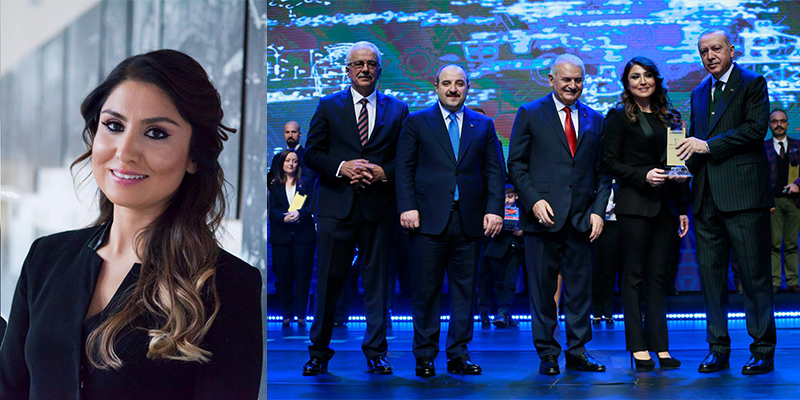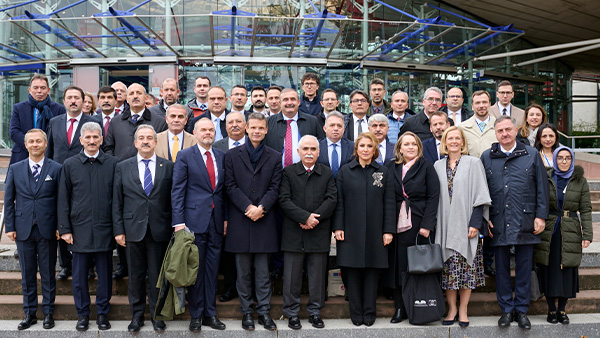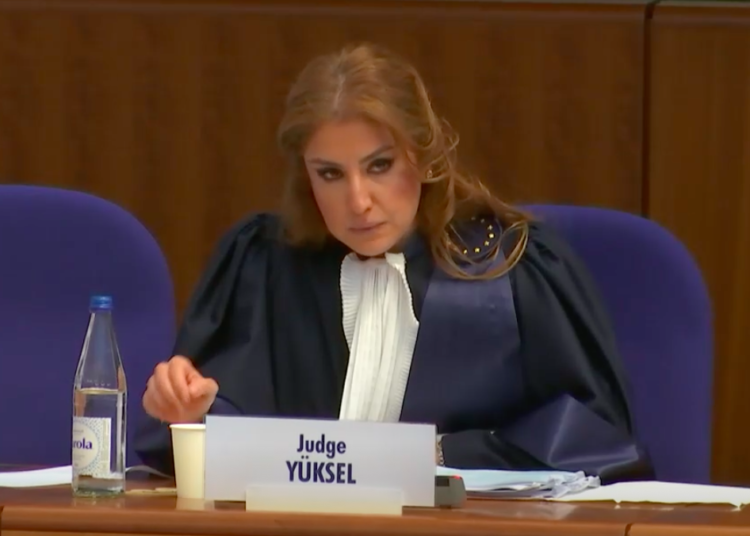Levent Kenez/Stockholm
Turkish judge Saadet Yüksel cast the sole dissenting vote as the European Court of Human Rights (ECtHR) on July 22, 2025 ruled that 239 people were unlawfully convicted of terrorism in Turkey based on the use of a messaging app, a decision that sharply criticized the post-coup judicial framework adopted by Turkish courts.
In a 6-to-1 ruling the court found that Turkey violated two fundamental protections of the European Convention on Human Rights: the right to a fair trial under Article 6 and the principle of legality as set out in Article 7, which means that individuals can only be convicted for actions that were clearly defined as criminal by law at the time they were committed. The court said the convictions in Demirhan and Others v. Turkey were largely based on the alleged use of ByLock, an encrypted messaging app Turkish authorities associate with the Gülen movement, a group inspired by the late preacher Fethullah Gülen, claiming it is critical of Turkish President Recep Tayyip Erdogan.
According to the judgment Turkish courts had used ByLock as the sole or decisive evidence to convict thousands of people of terrorist organization membership, without examining individual circumstances or proving intent. The ruling reiterated that this approach was incompatible with basic legal standards and repeated findings made in a 2023 Grand Chamber decision in the case of Yüksel Yalçınkaya v. Turkey.
Judge Yüksel, who has consistently sided with the Turkish government in politically sensitive cases, had issued a separate opinion for the Yalçınkaya case stating that she did not agree with the majority’s conclusion. She wrote that domestic courts in Turkey were entitled to evaluate ByLock usage as part of their national legal assessment and argued that the applicants had not been denied fair trials.
Yüksel’s position in Demirhan and Others v. Turkey follows her previous dissent in Yalçınkaya, where she also argued that the use of ByLock constituted valid evidence. In the latest case she again rejected the idea that the domestic interpretation of criminal law lacked foreseeability or fairness.

The 239 applicants in the case had each been convicted under Article 314 § 2 of the Turkish Penal Code for alleged membership in what Turkish authorities call the Fethullahist Terrorist Organization (FETÖ), blamed for the July 15, 2016 coup attempt. However, to date, Turkish authorities have not presented concrete evidence proving the Gülen movement’s involvement in the attempted coup. In addition, the actions of President Erdogan, the chief of general staff and the head of the National Intelligence Organization on the night of the coup have raised suspicions among critics, who argue that the events may have been a false flag operation aimed at eliminating political opposition
The convictions were based primarily on data showing that the individuals had used ByLock or connected to its servers. In many instances, the courts did not examine the content of messages or other contextual factors.
The judgment issued by the European Court of Human Rights in the case of Demirhan and Others v. Turkey:
Europe’s top human rights court found that the Turkish judiciary applied a uniform assumption that anyone who used the app was a member of an armed terrorist organization. This, the court said, disregarded the requirement to establish the material and mental elements of the offense individually and resulted in unjust convictions.
The ECtHR ruled that the blanket reliance on ByLock violated the principle of legality, noting that criminal liability cannot be based on mere possession or use of an application, especially without further proof of intent or organizational connection. It also determined that the applicants had been denied a fair opportunity to challenge the key evidence used against them.
The ruling emphasized that the Turkish courts’ approach failed to provide adequate reasoning in their judgments and did not allow the defense to meaningfully contest the validity or reliability of the ByLock data, which had been collected by the Turkish intelligence service and introduced without full transparency.
Despite these findings, the court declined to award any monetary compensation or reimbursement for legal costs, a decision that drew criticism from within the court itself.
Judge Oddný Mjöll Arnardóttir of Iceland, while agreeing with the majority’s finding of violations under Articles 6 and 7, dissented in part regarding compensation. In a detailed opinion, she wrote that the applicants had submitted their cases before the Grand Chamber ruling in Yalçınkaya and had incurred legal expenses in doing so. She said the court’s refusal to grant any financial relief, even minimal, was inconsistent with prior case law and unfair to the applicants.
Arnardóttir noted that the Grand Chamber had awarded costs to the applicant in Yalçınkaya and argued that failing to apply the same standard in Demirhan placed an unjust burden on individuals who pursued their rights through legal channels in a timely manner.
The majority of the judges stated that the declaration of a violation itself constituted sufficient satisfaction and that the reopening of domestic proceedings in Turkey would serve as the most appropriate form of redress. They said the court’s role in such systemic cases is to set standards under the convention, rather than to serve as a forum for financial restitution.
The judgment comes amid a growing backlog of applications against Turkey related to post-coup prosecutions. The court noted that over 8,000 similar applications are currently pending. All involve individuals convicted based on the same type of evidence that was deemed insufficient in Yalçınkaya and now again in Demirhan.

Following the 2016 coup attempt, Turkish authorities launched a sweeping purge of state institutions. More than 130,000 civil servants including judges, prosecutors and diplomats and over 24,000 members of the military were dismissed or arrested. Thousands were later convicted of terrorism offenses, often on the basis of ByLock usage, bank records or association with unions and schools linked to the Gülen movement.
The Demirhan judgment reaffirms the court’s position that such evidence cannot be used in isolation to establish criminal responsibility. It underlines that Turkish courts failed to distinguish between different levels of alleged involvement or to provide individualized assessments in the majority of cases.
Judge Yüksel reiterated her objection to the court’s reasoning, writing that she maintained the legal views expressed in her earlier dissent in Yalçınkaya. She disagreed that Turkey’s approach to ByLock amounted to a violation of either fair trial rights or the principle of legality.
Expressing dissenting or partly concurring opinions on almost every decision, Yüksel refers to the politicized Turkish courts, even in cases where she aligns with the majority decision. She has argued in multiple judgments that there is a lack of communication between the Turkish judiciary and the European Court of Human Rights.
In applications made after the 2016 coup attempt, which led to a proliferation of major human rights violations in Turkey, Yüksel has taken positions in favor of the Turkish government.

Yüksel’s consistent dissents in favor of the Erdogan government raise pressing questions about her impartiality. Yüksel has also voted against applicants in earlier high-profile ECtHR cases involving critics of the Turkish president, including Kurdish politician Selahattin Demirtaş and businessman Osman Kavala. Despite being a judge in Europe’s highest human rights court, she has often adopted views nearly identical to those of Turkish state prosecutors and government officials
Following her appointment to the court in 2019, human rights observers expressed concern about her impartiality due to her close links to Turkey’s ruling Justice and Development Party (AKP). Her brother, Cüneyt Yüksel, who is a ruling party lawmaker, and Saadet Yüksel herself were affiliated with Islamist foundations supported by the Erdogan administration.
Before joining the Strasbourg court, she also worked as an assistant to the late Burhan Kuzu, a senior adviser and public advocate for President Erdogan’s policies.
The European Court of Human Rights found violations of the European Convention in 92 percent of its rulings on Turkey in 2024, according to the court’s latest annual report. Turkey remains the country with the highest number of pending applications before the court, with 21,613 unresolved cases out of a total of 60,350 — accounting for 35.8 percent of the entire caseload. Russia follows with approximately 8,150 pending cases, while Ukraine has 7,700, Romania 3,850 and Greece 2,600. The high volume of Turkish applications reflects the scale of ongoing human rights concerns in the country. The report also points out that Turkey continues to rank among the top violators of the European convention, with persistent legal and judicial shortcomings leading to a significant number of adverse judgments.












